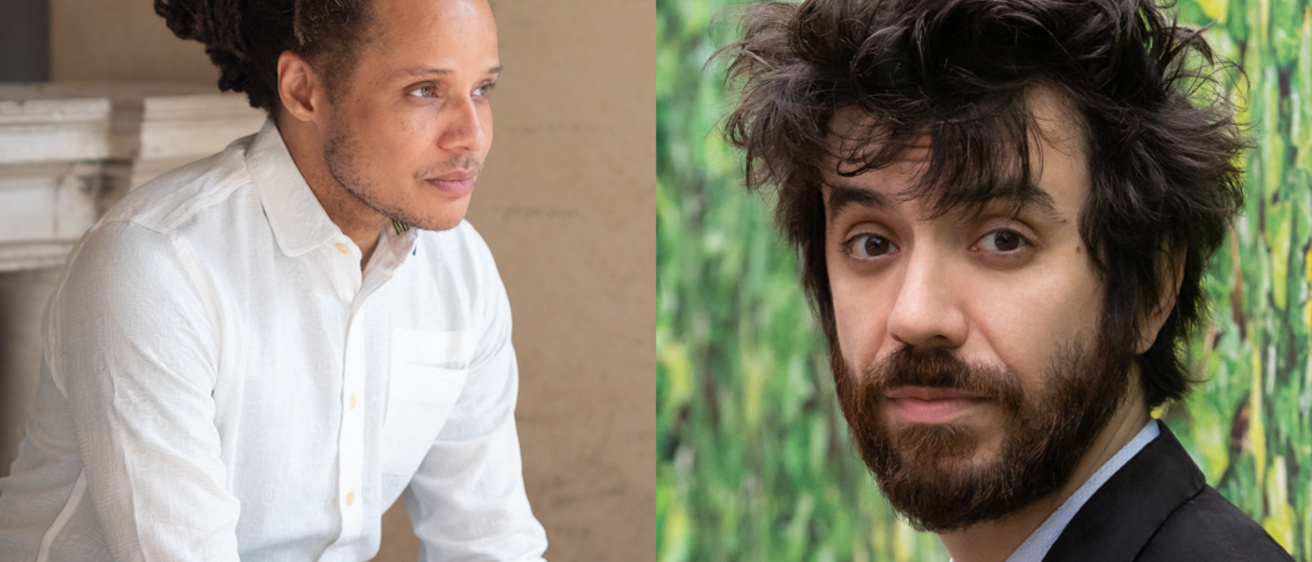Two University of Iowa faculty are among those selected for the 2024 Guggenheim Fellowship.
UI recipients of the Guggenheim Fellowship since 2010
2022: Melissa Febos, professor in the Nonfiction Writing Program and the Department of English
2021: Tracie Morris, professor of poetry, Iowa Writers’ Workshop
2020: David Gompper, School of Music, piano concerto, triple concerto, orchestral piece; H. Glenn Penny, Department of History, Beyond Colonial Questions: Being German in Guatemala from the 1880s through the 1980s
2019: Christopher Merrill, director, International Writing Program, The Trials of Roger Williams: A Biography
2016: John D’Agata, Department of English, three essays
2013: Phillip Round, Department of English, A Listening Ear: The Collaborative Practice of Early Native Literature
2012: Judith Pascoe, Department of English, Wuthering Heights in Japan; Steven Ungar, Cinematic Arts, Social Documentary in France, 1927–1962
2011: Ethan Canin, Creative Writing, untitled collection of short stories; Paula Michaels, Department of History, Lamaze: An International History
Kaveh Akbar, associate professor and director of the undergraduate English and creative writing major, and Jamel Brinkley, assistant professor in the Iowa Writers’ Workshop, are among the 188 recipients across 52 disciplines. Brinkley’s fellowship is under the fiction discipline, and Akbar’s is in the poetry discipline.
This year’s Guggenheim fellows were selected from a pool of nearly 3,000 applicants based on previous accomplishment and promise of future achievement in the creative arts. The fellowship provides six to 12 months’ funding for artists, scholars, and writers to pursue creative projects.
Kaveh Akbar
Akbar has two books of poetry, Calling a Wolf a Wolf and Pilgrim Bell, and he serves as the poetry editor for The Nation. He has received the Levis Reading Prize, multiple Pushcart Prizes, Ruth Lilly and Dorothy Sargent Rosenberg Poetry Fellowship, and Civitella Ranieri Fellowship. His poems also have appeared in The New Yorker, Poetry, PBS NewsHour, Paris Review, Best American Poetry, and The New York Times. Akbar’s first novel, Martyr!, was published in January and is a New York Times bestseller.
“I’m grateful for the creative freedom the Guggenheim fellowship will afford in terms of being able to make and focus on making,” Akbar says. “I just released a novel in January, and I came up as a poet, but I also love painting, sculpture, and film. I have a few projects in the pipe right now, and I’m eager to roll up my sleeves and start to work.”
Akbar joined the faculty at Iowa in fall 2022.
“There’s nowhere in America with a greater density of literary talent than in Iowa City,” he says. “There’s nowhere in America with a greater density of literary programming. It’s like Narnia for writers. It’s the land of milk and honey to be able to saturate yourself in the art to which you’ve given your life, and this is the best place for that. I feel totally grateful to be a tiny little whisper into that tradition.”
Jamel Brinkley
Brinkley’s short story collection, A Lucky Man, won the Ernest J. Gaines Award for Literary Excellence and was a finalist for the 2018 National Book Award, the 2019 PEN/Robert W. Bingham Prize for Debut Fiction, the 2018 Story Prize, the 2018 John Leonard Prize for Best First Fiction, and the 2018 Hurston/Wright Legacy Award in Fiction. His latest short story collection, Witness, was released last year and was a finalist for the PEN/Faulkner Award for Fiction, the Aspen Words Literary Prize, and the Kirkus Prize.
“It’s an incredible honor to be named a Guggenheim fellow, especially when you think about some of the incredible people, writers or otherwise, who have also been named fellows,” Brinkley says. “I plan to work on a novel and, I hope, some new short stories.”
Brinkley graduated from the Iowa Writers’ Workshop in 2015 and joined the workshop’s faculty in fall 2020.
“I had tremendous teachers and found friends and readers for life among my cohort in the workshop,” Brinkley says. “With my own students, I try to pass on some core wisdoms about writing and the writing life, share some foundational ways of thinking about writing, and equip them to challenge convention and write in a way that feels true to them, a way that scares them a little. This university is the institutional setting that has allowed me to be my most creative self, in my work and in my teaching.”
